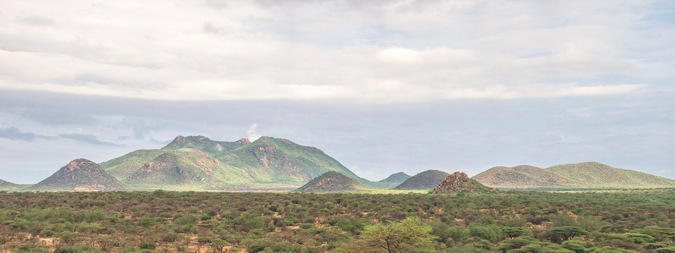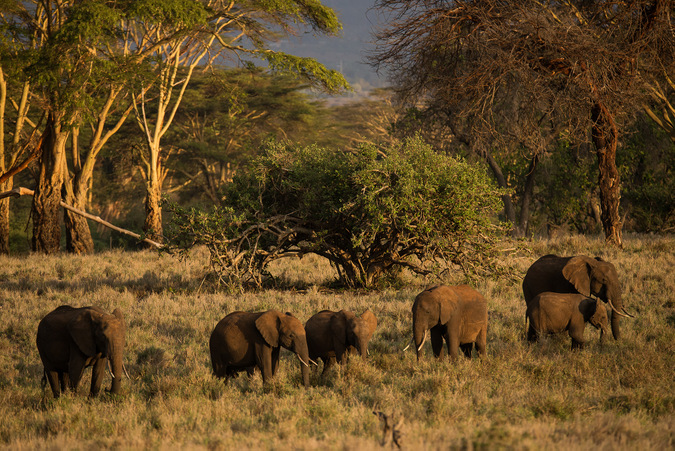
Opinion post: Land issues: The story of beauty and violence, written by Peter Kanda
Land, an emotive subject, a limited resource that builds nations or breaks them. Use it well and you thrive, use it unwisely and you will sink to the bottomless pit of chaos and poverty.
Kenya is a beautiful country, blessed with beautiful coastlines, rich plains full of life, from the shores of Lake Victoria to the snow peaks of Mount Kenya. This is the home to roughly 45 million people. This is the home to 44 tribes of diverse ethnic backgrounds, cultures, languages and of a people with strong resolve. They are resilient and have been together through colonialism, through independence, through building of a democracy and united in difficult moments.
However, land is also an issue that evokes very strong emotions and reopens wounds of deep historical injustices that have never been resolved. The lack of resolution is because of a lack of political will and because the powerful elite, who are beneficiaries and often the perpetrators of these historical land injustices, maintain the status quo – and thereby continue to thrive.
History
Before the colonial empire landed on Kenya’s shores, Africa was booming with trade and the migrations and settlement of various communities. The Arabs and Chinese were already trading along the coast of Africa and those tribes along the coast thrived. These tribes had their own thriving culture, languages, religion. They had their own traditional setups to govern themselves through elders or rulers. This thriving life on the highlands or plains of Kenya would be brought to an abrupt end in the late 1800s.
The coming of the colonial empire to Africa was a blessing and curse at the same time. They demolished these societies ruthlessly and set up to rule in the most violent of ways. They separated families and took land from them. Right about this time is when the current land issues began in Kenya.
During the scramble for Africa, the British used lethal force on the natives, forcing and subjecting them to surrender. They relegated them from being human beings to creatures of oppression and yet still wielded the Bible and preached salvation. They took the most fertile of their lands and sent them to live together in a reserve. The reserve was generally unproductive, and they would put the natives in valleys filled with all kinds of diseases and insects, put them in swamps to make residence out of the reeds. They used forced labour to add value to the lands. They collected hut tax to enrich their colonies. They committed human atrocities on all counts, but none remained more significant than the land injustices.
When independence came knocking in early 1960s, some settlers left and others remained. Some sold the same land that was taken from the natives to the Kenyan elite. Some of the land was grabbed, some of the land was split and given back to the communities. Some areas remained with the settlers or the settlers sold it. One such area is Laikipia.
Laikipia
Laikipia is a beautifully serene and magical plain, with the backdrop of Mount Kenya. Laikipia is blessed with a beautiful savannah, with gentle ridges and timid valleys creating ideal places for lodges and getaway homes. The beautiful people who lived here and co-existed with wild animals for centuries were removed, in favour of a conservation colony. This is textbook African conservation.
However, the last century has seen different tidings for this expanse of land. It is unevenly divided between the huge land owners and the original inhabitants of the land. Almost half of Laikipia is occupied by different conservation-based owners, almost all white-owned. Roughly 36 individuals and families hold more than 30% of the land – the rest is community land, either small scale farmers who own small properties or public land. Most of the community land is situated in less productive areas.
These conservationists are doing a brilliant job in efforts to preserve the wildlife, but this is done to a great extent at the expense of the natives. Could this be the reason for the recent attacks? What are the sources of this conflict and how can we resolve the problems?

The land
In Kenya land is classified in three ways: private land, public land and community land. Before colonisation or land-grabbing, Laikipia was originally community-owned, used for grazing and residence. Now, most of the land leases owned by conservationists are expiring or have since expired. To compound this problem, Laikipia County is surrounded by nomadic pastoralist communities who at times are well armed. They move from one area to another, depending on the season. With land as the central issue, several factors add fuel to the fire. The nomadic pastoralists are frustrated by drought, greedy opportunistic politicians and population growth.
Finding a resolution
How do we resolve this? How we ensure the community benefits more?
In my opinion, part of this land should be reverted to community land and adopt the same structure as the Maasai Mara. The Maasai Mara is owned by the Maa community. They use it to graze cattle and at the same time preserve the wild animals. This also poses some fundamental questions. Has wildlife been preserved without conservationists? Yes. Is conservation an important part of preserving wildlife? Yes.
The problem is that these conservationists benefit a few people financially and disturb the economic activity of the natives. Some conservationists have built schools or supported schools that are several kilometres away – rendering it impractical for the locals – and therefore being of little benefit for the larger population.
The interest of those few elite are overriding those of the natives. BUT is violence the way to solve this? Absolutely NO. No killing of another human being will solve this problem.
There has been a far wider coverage for the owners who are injured or killed compared to natives who are killed. Various media stations and blogs rushed to announce when Tristan Voorspuy was sadly killed on his Laikipia farm, and the British High Commission issued a statement. The Director of CID himself flew to Laikipia. But how many locals were killed during the unrest? How many media outlets covered it when hundreds of community-owned cattle were killed? Another example is the Kuki Gallman case (she was shot and wounded on her Laikipia farm). The bias is pretty obvious. All these biases gives way to neocolonialism undertones, it gives way to a silent imperialist rule that leaves a bad taste in the mouth of patriotic Kenyans.

A solution?
How do we solve this? Perhaps through dialogue? Some of the huge land owners in Laikipia are as Kenyan as the natives – they were born there, lived there and respect the locals. The government needs to create avenues through the Truth Justice and Reconciliation Commission. The government can also help the communities around these areas to develop alternative livelihoods and invest in developing facilities such as schools, medical dispensaries, and roads.
Lastly, the natives who have the sovereign power enshrined to them by the constitution need to elect leaders who are wise enough to not politicise the issue, leaders who will not use violence as a means to solve land issues. The beautiful land of Laikipia deserves to be preserved for generations.
To comment on this story: Login (or sign up) to our app here - it's a troll-free safe place 🙂.![]()






